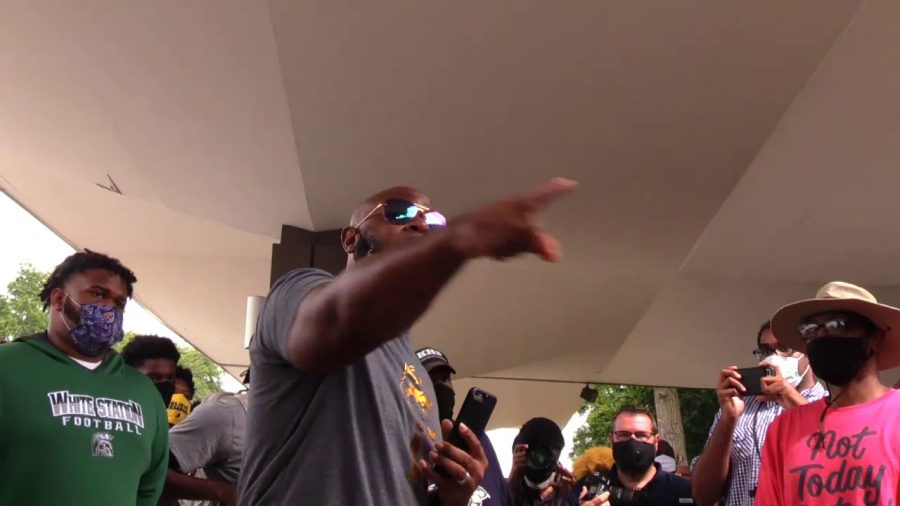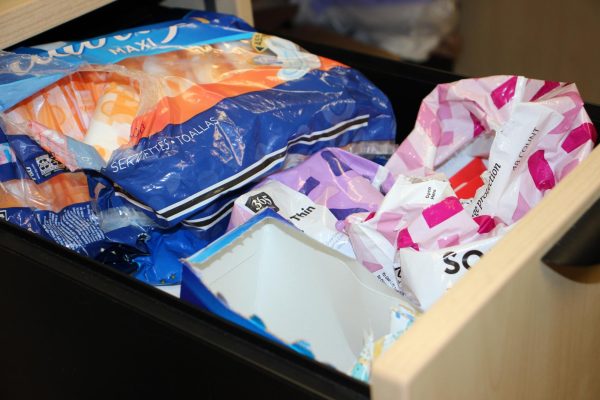Basketball players resort to club teams to keep playing
Protestors, including Cameron Blaylock (12, left) took to SCS headquarters following the announcement to postpone fall sports. One common worry was the potential denial of a college education via sports.
Basketball is a continually changing game. From the introduction of the three-point line to the rise of seven-footers with the handles of the point guard, the sport played today is almost unrecognizable to the sport played 60 years ago. However, this year has required more adaptation than ever, and with the status of SCS winter sports in the air, many players are using ongoing club basketball as a final opportunity to compete.
To most players, club basketball isn’t new. Many have played for AAU teams since elementary school and use it as an opportunity to prepare for the school varsity season. However, the importance of club basketball has increased as a result of COVID-19.
“The main goal of playing sports is to try and earn a scholarship… and [the virus] has hindered college coaches from watching and having the ability to give out scholarships,” Jacob Roberts (12) said. “… the platform of club basketball has most definitely helped coaches find me and see my talent.”
Like many things this year, club basketball is different. In a normal year teams would be able to travel across the country to play each other, and major tournaments would attract large crowds.
“The competition this year was really weird based on the fact that a lot of teams weren’t playing and traveling,” Davon Barnes (12) said.
In addition to limiting travel, the organizers of club events have imposed other safety guidelines in order to keep everyone involved as safe as possible.
“The maximum number of people in the gym was limited. Fans had to wear a face mask and player’s temperatures were checked before entering the gym,” Roberts said.
While, at the end of the day, school basketball and club basketball are the same sport, there are some distinct differences between the two, most notably the sense of pride that comes with playing with the school team.
“Club and school basketball are two different experiences,” said Roberts. “You play the same sport but the environment in the building seems different… the rivalry and tension between two [school] teams is a feeling you can’t pass up.”
While club basketball has given players an opportunity in a year when they have been scarce, many still would rather be playing for their school.
“I personally enjoy high school basketball more based on the fact that there are no outside complications and [you] are more focused on the team,” Barnes said. “[You] also get to hang around them more and build relationships with teammates.”
Your donation will support the student journalists of White Station High School. Your contribution will allow us to purchase equipment and cover our annual website hosting costs.






































